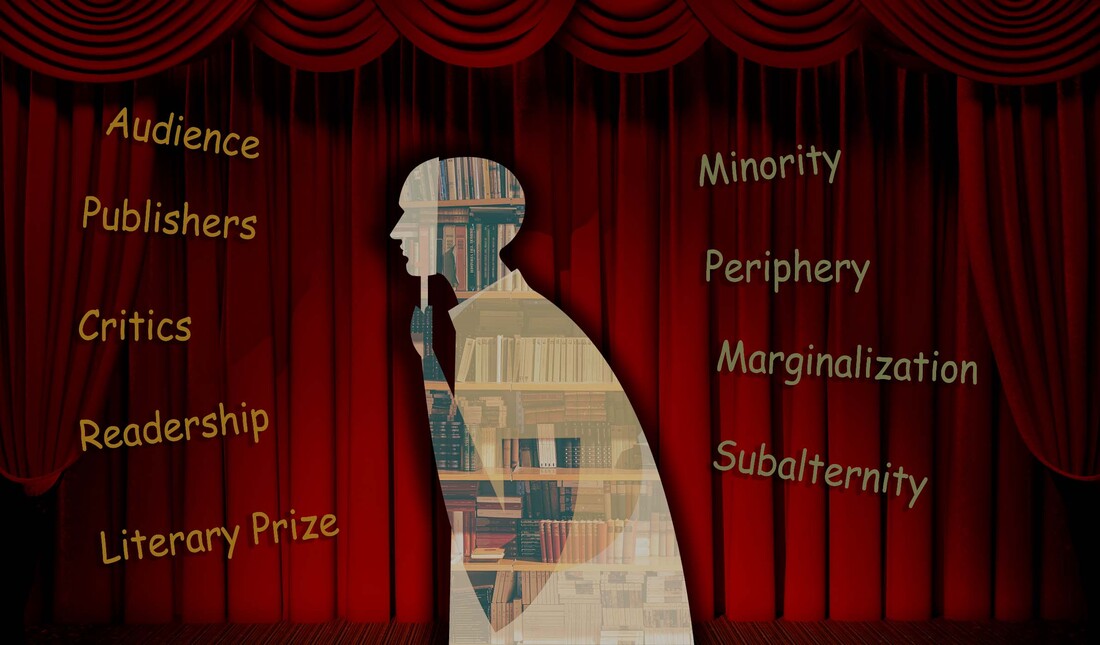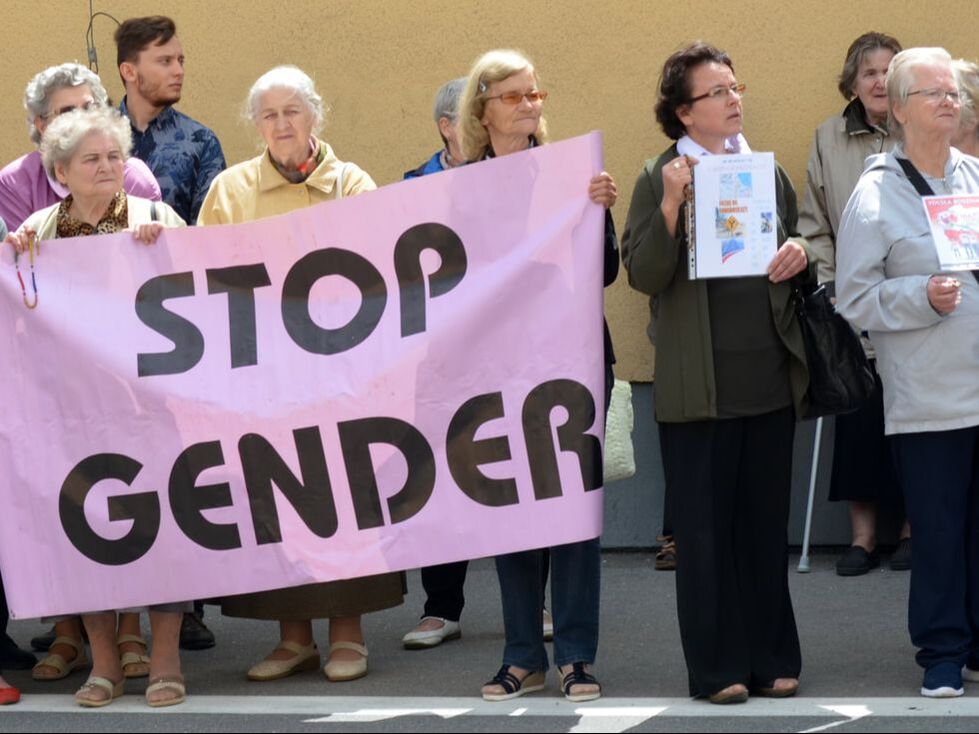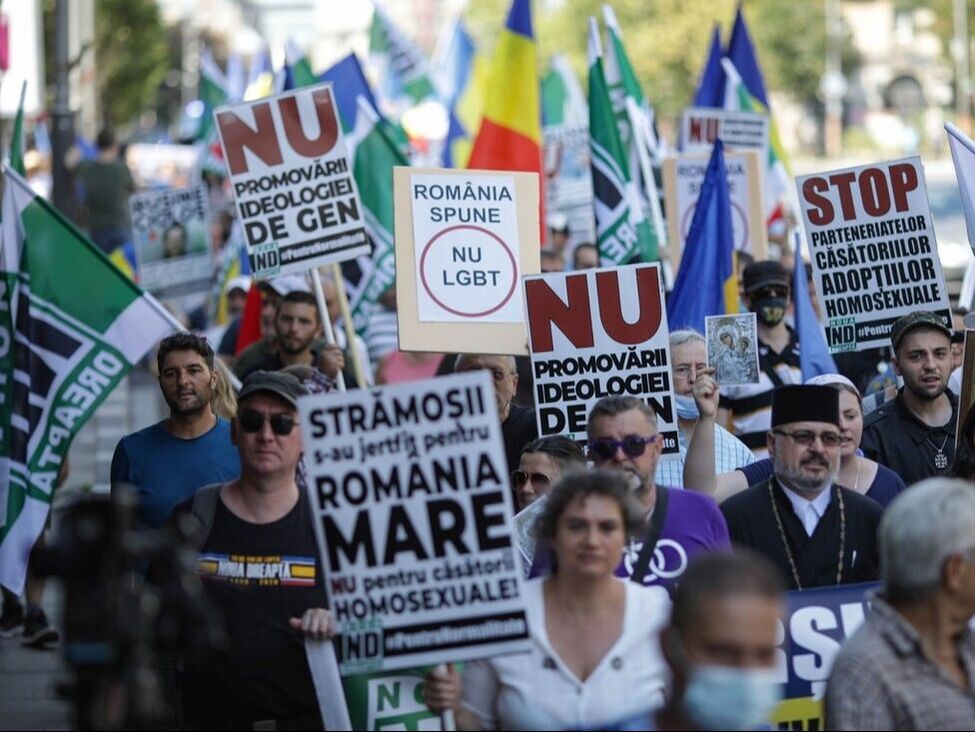|
|
|
Blog post by Ece Yoltay, Ahi Evran University, Turkey
My Identities article, ‘Queering trialectics among space, power, and the subject: spatial representations and practices of othered identities in Turkey’, is grounded in a critical analysis of the Foucaldian conceptualization of the relation between power and the subject. It does so by examining the construction of the concept of ‘supra-identity’ with the Repressive and Ideological State Apparatus in Turkey. Since the Republic of Turkey was established as a nation-state in a predominantly Muslim society, various legal and social regulations determining state-citizen relationships have been shaped in its political history (single-party period 1923-1946, multi-party period 1946-2018, Presidential system 2018-present). While each government in this history produces its own political interpretation of the 'ideal' citizen, the emphasis on Turkish and Muslim identities, particularly within the heteronormative social structure associated with Islam, has been common value for defining ‘supra-identity’. In Turkey's multicultural society, homogenizing differences over these identity values of the 'majority' has been deemed necessary for the 'unity of the state'.
0 Comments
Blog post by Nickesia Gordon, Rochester Institute of Technology, USA
The thematic focus of the July 2023 Commonwealth Parliamentary Association’s (CPA), Regional Conference on Women’s Political and Parliamentary Leadership once again underscores the need for greater equity as it pertains to women’s engagement in political leadership across the Caribbean. This event was hosted by the group, Commonwealth Women Parliamentarians from the CPA Jamaica Branch, under the theme, ‘Empowering Women in Politics and Parliament: Inspiring Leadership, Driving Change.’ As much as the title theme of the conference is telling, so too is the location in which it took place; namely, New Kingston, Jamaica, an upper middle class mixed residential and business neighbourhood populated by Jamaica’s elite.
Blog post by Fatima Rajina, De Montfort University, UK
When we think about Muslim clothing, often our immediate thoughts turn to Muslim women and their sartorial choices. Much of this has been framed via the media because of its incessant coverage, focusing on many European countries and their legislation monitoring Muslim women's clothing choices. This very discussion is in the press currently, as France has banned wearing the abaya in schools for young Muslim girls. It is precisely this framing that made me think about where Muslim men fit into this equation. How do Muslim men choose what they wear in public? What informs their decisions? As a result, in my Identities article, 'British Muslim men and clothes: the role of stigma and the political (re)configurations around sartorial choices', I diverted from the fixation on Muslim women and interrogated the political imagination and (re)configuration of dress practices among British Bangladeshi Muslim men. I selected three attires, the lungi, the funjabi and the thobe, because of what they represent for Bangladeshis. The lungi and funjabi, although associated with Bangladeshis, carry different meanings in the diaspora than in Bangladesh. I explore how these two garments are worn in the UK and how they (re)appear in public. In contrast, the thobe projects an Islamic universalism not afforded to the first two garbs and carries a different form of visibility. I focus on how British Bangladeshis of varying age groups interact with different forms of attire and what it means for their identity negotiation in the public sphere.
Blog post by Emiliana De Blasio, LUISS University, Italy, Marco Palillo, University of Bradford, UK and Donatella Selva, University of Florence, Italy
Over the last decade, the Mediterranean Sea has become one of the deadliest migration routes for asylum seekers and migrants wanting to reach Europe from Libya. In response to the high numbers of deaths associated with perilous journeys and dangerous smuggling strategies, numerous non-governmental organisations (NGOs) have been operating in the Mediterranean Sea to provide search and rescue (SAR) operations to migrant vessels in distress at sea. Over the years, the new centrality of NGOs’ humanitarian efforts in the Mediterranean Sea in the Italian public and media discourse has led to significant tensions with right-wing parties. Most notably, Matteo Salvini’s League and Giorgia Meloni’s Brothers of Italy have repeatedly criticised NGOs involved in SAR operations for facilitating irregular migration flows and defying Italian border control policies. Since its inauguration in October 2022, the newly installed government led by Giorgia Meloni has engaged in a series of clashes with NGOs running SAR operations in the Mediterranean Sea as part of the government’s hard-line stance on ‘illegal’ migration. In particular, Meloni’s government has promoted a new migration policy that introduces further restrictions on the capacity for NGO vessels to conduct multiple rescues in the same mission.
Blog post by William Shankley, University of Nottingham, UK
Nearly twenty years have passed since the expansion of the European Union (EU) led to the significant movement of Polish citizens to the UK. Despite the UK's subsequent departure from the EU, Polish migration assumes a prominent place in the country's migrant diversity. Belonging is a crucial aspect of migrants' lived experience in another country, and previous studies on Polish migrant belonging in the UK have primarily focused on the neighbourhood context as this is contested, resisted and reshaped. Additionally, the majority of existing research has predominantly concentrated on Polish migrants' belonging among those working in low-skilled industries, which was the dominant occupational position most Polish migrants entered into. Nonetheless, Polish migrants' entry into a range of workplaces after their migration offers an equally important site in which to examine their belonging. Furthermore, there has also been a lack of research into Polish migrants working in professional occupations and their belonging at work.
Earlier this year, Home Secretary Suella Braverman announced she was not proceeding with multiple recommendations made by Wendy Williams’ public inquiry into the Windrush Scandal. The inquiry examined the Home Office’s adverse actions against people from the Windrush generation who predominantly migrated to Britain from the Caribbean between 1948 and 1973 (Gentleman 2019; Slaven 2022). Reports have detailed the profound effects on those directly impacted, revealing stories of individuals who were denied healthcare and welfare services, and in some cases were ripped away from their families; detained and even deported (Gentleman 2019; Williams 2020; Slaven 2022). The ensuing scandal thrust their treatment into the public consciousness and ignited a public uproar. Yet, as the scandal faded from media attention, we still have a limited understanding of the scandal’s broader impact on Britain's racialised communities, beyond those directly affected by the Home Office’s actions.
‘Identity’ is probably amongst the most circulated terms in the academy and beyond. However, a critical reflection on the use of this term in the context of cross-cultural fictional narratives could reveal a major issue. Rather than representing a genuine state of human condition, the term has become a strategic means used by some minority writers to boost readership for their writings.
Given the hierarchies of the world literary system consisting of influential agents such as critics, publishers and marketing expectations, certain languages, regions, styles and poetics are privileged over others. The world literary system thus mirrors the ‘neo-imperial contours of global capitalism’, dominated by multinational publishing conglomerates with powerhouses in London and New York. My Identities article, ‘We have much identity’: contesting the claimed hybrid identity in Faqir’s My Name is Salma and Ahdaf Soueif’s In the Eye of the Sun’, examines how some Arab Anglophone women writers manipulate identity constructions and essentialise their hybrid identities as a strategy to boost readership and market values for their works. Through a close reading of Fadia Faqir’s My Name is Salma and Ahdaf Soueif’s In the Eye of the Sun, the article reverses the gaze on the societies that these texts claim to reveal.
Gender, as expressed on namely the bodies of Muslim women, is positioned at the centre of the radical right’s linkage between migration and religion. This link is visible in the persistent debates on the ban of Muslim body-covering, which in Austria has been promoted by the Austrian Freedom Party (FPÖ) since the turn of the century.
FPÖ’s debates on the ban of Muslim body-covering – of the headscarf in kindergartens and schools or of full body-covering in public spaces – which re-emerged since 2015, illustrate that the radical right instrumentalizes the intersection of gender, body and religion in its search for new forms of governing. As I explore in my recently published Identities article, ‘Radical right populist debates on female Muslim body-coverings in Austria. Between biopolitics and necropolitics’, the radical right’s debates over female Muslim body-covering are embedded in the neoliberal reorganisation of societies and a crisis of governability, which radical right-wing actors use to implement their own biopolitical and necropolitical projects.
A broad and perhaps underappreciated feature of radical right populism is its simultaneous mobilization of cultural Christianity, on occasion combined with secularism, and women’s (and sometimes LGBT+) rights in a racializing, anti-immigration, and anti-Islamic discourse. Take for example the recent reaction in the USA of Republican Representative Marjorie Taylor Greene, who proclaimed on Twitter that ‘I am being attacked by the godless left because I said I’m a proud Christian Nationalist’ and added that she is even being called ‘a Nazi because I proudly love my country and my God’. By the same measure, in Italy, the League (La Lega) chairperson Matteo Salvini has previously maintained publicly his certainty that ‘Madonna will bring us the [political] victory’ and praised in religious conservative media the ‘traditional (heterosexual) family’.
Coloniality deserves special attention to contextualise Professor Hempton’s lecture on “Women’s Networks: Opportunities and Limitations”. First, the context that overlaps historical and political elements: the year 1888. The poster at the back of Professor Hempton as he delivered the talk informed that the Gifford Lecture series dates from 1888. In the same year, Brazil declared the Abolition of Slavery – the last country in the Americas to officialise such law that is not fully put into practice as many cases of forced labour and slavery remain current.
That reminded me of so many unofficial Black women’s collectives who organised as a quilombo, favelas communities, marginalised neighbourhoods (periferias) as they created ways to resist and refuse the places that the colonial-hegemonic society imposed on them. For example, the Herstories of Dandara and Luiza Mahin. Dandara refused to be enslaved and became a quilombo leader, a warrior, agriculture worker in the initial land rights, abolitionists, antiracist and feminist movements in Brazil during the late 1600s. Luiza Mahin was a Muslim, enslaved domestic worker, strategist of one of the most remarkable pro-abolitionist revolutions in Brasil – the Malês Revolt – organised by enslaved peoples. Her Islamic, Jêje-Nago and Yoruba backgrounds are the marks of intersecting systems of beliefs that to this day are erased in the narrative about Brazil’s national identity.
Concocted by the conservative quarters of the Vatican, the disparaging term 'gender ideology' has been taken up not only by the radical right, but also by some centre-left, liberal commentators, seemingly unconcerned with the concept's troublesome history. One notable example is the Economist's last year article denouncing the so-called 'trans ideology', titled A backlash against gender ideology is starting in universities. In my Identities article, 'Framing ‘gender ideology’: religious populism in the Croatian Catholic Church', I consider the provenance of how the 'gender ideology' frame was utilized by the Catholic church in Croatia – one of the earliest cases of widespread anti-gender mobilization in Europe.
Having gone through a double transition to a capitalist liberal democracy, the revived religious nationalism in Croatia competed with liberal values from the 'free Western world'. The generous Vatican agreements signed in the late '90s by the authoritarian, right-wing government provided fertile ground for a blossoming of Catholic evangelization and proliferation of lay activism. In contrast to current research on the populist radical right which demonstrates the manipulation of religion committed by political actors, I identify factions of the Church itself as populist entrepreneurs. Polarizing populist discourse is traced back to Pope John Paul II's warnings against 'the war of the powerful against the weak', and connected to newer doctrinal, papal writings on issues of gender, ecology and politics.
Populist parties and leaders have become important actors across the globe. The 2022 presidential elections in France, and parliamentary elections in Sweden, as well as Turkey’s 2023 presidential elections not only revived academic research on populism and stirred scholarly debate about how to conceptualize it, but also compelled electors and political actors to reflect on the political developments taking place on the populist right front.
In our Identities article, ‘The veil as an object of right-wing populist politics: A comparative perspective of Turkey, Sweden, and France’, we selected three countries which have extremely different religious, secular, and cultural contexts. We then analyzed the political statements by the radical right-wing parties in each of the chosen countries: the Justice and Development Party (Adalet ve Kalkınma Partisi, AKP) in Turkey, the National Rally (Rassamblement National, NR) in France and the Sweden Democrats (Sverigedemokraterna, SDs) in Sweden.
The adamant defense of Christianity by far-right populists, as well as their ostensible display of Christian symbols such as the rosary, have been interpreted as hijacking religion from the hands of religious leaders and institutions. In fact, religious leaders have often accused far-right politicians of instrumentalizing religion for political gain, while far-right politicians have accused religious leaders of not defending Christianity against Islam. In a sense, far-right populist actors present themselves as being better interpreters and defenders of Christianity than religious leaders.
As many scholars have pointed out, the Christianity that far-right populism defends is a matter of culture and tradition imbricated in the historical past and national identity rather than a matter of faith. Thus, populists have been accused of not being ‘true believers’ and twisting religion to better serve their aims, and self-identified religious people who support far-right populism have been framed as victims of the political instrumentalization of religion. In my Identities article, ‘Hijack or release? On the heuristic limits of the frame of instrumentalization of religion for discussing the entanglements of populism, religion, and gender’, I explore the relationships between populism and religion from another angle, taking the transformations undertaken by religion and religiosity in contemporary societies into account.
In 2018, Romania organised a national referendum with the goal of defining in the Constitution that a family is composed of a man and a woman. Most of the parliamentary political parties openly supported the issue. The turnout failed to pass the 30% threshold needed for the referendum to be validated, but 93% of those who voted were in favour of this restrictive definition of family. It should be noted that the Romanian referendum was not an isolated case. Similar mobilisations around family and marriage issues have taken place throughout Central and Eastern Europe since the beginning of the 2010s (Croatia 2013, Slovakia 2015, or Slovenia 2015, for instance).
In our Identities article, ‘No populism’s land? Religion and gender in Romanian politics’, we analysed the way parliamentarians used religious symbols and contents within their speeches during the debates for the 2018 referendum. We focused our research on the parliamentary debates covering the adoption of the referendum in Parliament (2012–2018) and the follow-up period (2018–2020) to analyse the ways political actors conceive and represent religion and gender in contemporary politics.
On April 11, 2015, Pia Kjaersgaard, former leader of radical right populist Danish People’s Party concluded in her opinion piece: ‘We must dare to say that Christianity is better than Islam’. One year later, during the so-called burkini debate in France, Marine Le Pen, leader of radical right populist National Rally (formerly National Front), wrote in her blog: ‘This is the soul of France that is in question (…) France does not lock away a woman’s body, France does not hide half of its population under the fallacious and hateful pretext that the other half fears it will be tempted.’
These examples illustrate phenomena that have interested both academics and the public following the rise of radical right populist parties in the last couple of decades. More clearly, how are religion and gender featured in the rhetoric of such parties? These debates reveal two paradoxes.
You might reasonably wonder what Muay Thai or Kickboxing has got to do with race or division? Or what the niche sports of Muay Thai and Kickboxing are in the first place. Muay Thai is a combat sport originating from Thailand that evolved out of 17th-century warfare techniques and now incorporates punches, kicks, knees, elbows and clinching. Kickboxing has a similar ruleset, albeit elbows are illegal and clinching is limited. Training within both sports is an embodied practice that requires intimate bodily contact between training partners.
My Identities article, ‘Fighting with race: complex solidarities & constrained sameness’ (and the broader doctoral project it derives from), draws upon ethnographic field work and my experience training to compete in Muay Thai. Within the article, I explore how fighters seek to construct one another as the same, as fighters, as they disavow race and problematise prior notions of gender and masculinity (alongside other identity markers). In part, the disavow of gender and masculinity was enabled by the presence of female fighters, which contrasts with boxing gyms that are notable for the exclusion of women and/or for taking their fighting ambitions less seriously. Thus, whilst remaining a ‘hyper-masculine’ space, I foreground three factors that enable people to argue for contingent sameness.
The latest evidence of Europe’s anxieties about immigrant (non-) integration comes in the form of a draft declaration released by Germany, France and Austria in November 2020. The declaration pushed for stricter EU integration rules, stating, ‘It needs to be possible to sanction sustained refusal to integrate more strongly than has been the case to date’.[1] Yet, each European country has always had a wide scope for determining how to admit and incorporate new members, and countries have not refrained from introducing strict measures. The latest trend is to start the integration process as early as possible – even before the migrant arrives, when traveling to Europe is just a dream. In recent years, France (2007), Denmark (2010), the UK (2011), the Netherlands (2006) and Germany (2009) have all introduced pre-integration measures for nationals of certain countries.
In my Identities article, ‘Cultivating membership abroad: Analyzing German pre-integration courses for Turkish marriage migrants’, I examine the aims and methods of German pre-integration courses offered to Turkish marriage migrants in Istanbul. Using participant observation and in-depth interviews, I also examine instructor perceptions and student reactions to the curriculum.
It is well known that Asian American men are commonly stereotyped as effeminate, asexual and nerdy in American society. But how are such dominant stereotypes experienced by them, and how do they negotiate, avoid and contest them? In my Identities article, ‘What makes hegemonic masculinity so hegemonic? Japanese American men and masculine aspirations’, I demonstrate how Asian American men appear to be emasculated in such a manner because they are compared to idealised, hegemonic images of masculinity usually associated with white men.
Because such hegemonic masculine standards have become pervasive and widely accepted in American society, they have also been adopted by Japanese American men. As a result, they perceive their subordinate masculinity as inferior and effeminate, making them feel romantically unattractive. Such negative assessments are shared by Japanese American women, who are also under the pervasive influence of hegemonic masculinity and often find Japanese American men to be romantically undesirable, and prefer to date and marry white men.
Du Bois’ work provides invaluable insights into the nature of reflexivity and self for the racialised 'other', which traditional, classic sociology has often overlooked. Whilst efforts to decolonise sociology continue, such as by including theorists such as Du Bois, there still has not been a sustained effort to dismantle and reconfigure an overwhelmingly white sociological canon still prevalent in European sociology (Meer 2019).
In his seminal work, The Souls of Black Folk (1903 [2007]), Du Bois centres discussion of belonging, identity and self-awareness for racialised minorities through concepts of the ‘Veil’ and ‘double consciousness’. Du Bois’ analogy of the Veil is that of a racial barrier which is made of material in the divided experiences and inequality between the white majority and African-American minorities in the USA. For Du Bois, the Veil’s semi-transparency lends itself to the duality experienced by the racialised ‘other’: a double consciousness or a ‘two-ness’ which incorporates a ‘sense of always looking at one’s self through the eyes of others’ (p.8). In my Identities article, 'Examining BSA Muslim women’s everyday experiences of veiling through concepts of ‘the veil’ and ‘double consciousness’, the focus is on a reflective aspect of living behind the V/veil and the effects of double consciousness on gendered and racialised bodies. Here the capitalisation of the Veil is used to denote Du Bois’ descriptions of a divided world, whilst the non-capitalised use of veil (along with discussion on veiling, veiled) refers to the wearing of the hijab or niqab, as well as ways women discuss veiling practices.
In the 1930s, the retired British governess Mary O’Neill lived in Florence in the company of her female co-nationals. A close-knit diaspora of English aristocratic intellectuals and bohemians, they sought to spread English cultural traditions to the Italian masses. They tried to help ordinary Italians enjoy Shakespeare and Renaissance art, not only to dream about glamorous cars and other pleasures of the Jazz Age. Mary O’Neill and her friends greatly contributed to the upbringing and the artistic rise of the young Franco Zeffirelli. But did they manage to gain prestige within their Italian community? Known for their poignant wit, those expat women, whom the locals sarcastically called ‘Scorpions’, were, in fact, totally alienated from a wider Florentine community.
Depicted in Zeffirelli’s Tea with Mussolini, this story of cultural resilience finds a lot of resonance with diasporic reality today. In the large volume of studies on diaspora, an issue of concern is that many expats who speak culturally and civically on behalf of their homeland find zero reciprocity within their local community (Nye 2004; Watanabe and McConnell 2008). Why do highly intellectual expats, who seek to morally enrich their host society, often fail to be accepted by their local communities? This question is explored in-depth in our Identities article, ‘Reflections on diaspora and soft power: community building among female US expats in Southern Europe’, which looks at life experiences of highly educated US-national expat women in Italy and Greece from the 1990s to 2015. They all hold degrees from leading US universities. Many of them are married to local men. And all of them seek to spiritually invigorate their local communities by showing them how to take care of the public space, such as to clean streets from litter and set up shelters for stray dogs and cats. They see these as typical ‘North American civic values’ that they are teaching to their ‘unenlightened’ neighbours.
In our Identities article, 'Private empowerment and public isolation: power in the stories of migrant ‘Mother-Poles’, we seek to understand what kinds of empowerment and disempowerment narratives can be linked to migrant motherhood and mothering in the case of Polish women raising their children abroad.
By linking two perspectives of migrant mothers themselves, as well as at looking at stories of adult children brought up by Polish mothers outside of their country of origin, we investigate maternal power which may, on the one hand, ground women as managers of their households but, on the other hand, does not seem to alleviate the general isolation they face in regards to the broader society. To gain a better understanding of the specific type of Polish migrant mothers we call ‘Mother-Poles’, it is vital to clarify that the particular Mother-Pole construct is a significant yet somewhat blurry notion of Polish motherhood. Moulded from both a religious inspiration of the Virgin Mary’s cult in Catholicism, and an experience of managerial matriarchy which described women’s resourcefulness during the time of State Socialism in the Central and Easter European block, the Mother-Pole figure is omnipresent in religious, social and political discourses, imbuing a reference point for the everyday life of many Polish women over 40.
Difference is something that exists in the bodies and culture of ‘others’
Sara Ahmed, 2007 In the wake of the recent intensification of activism and debate on why and how Black Lives Matter it is important to keep interrogating the multifaceted ways in which racism is pervasive within institutional practices – often in not immediately visible ways. In the UK, the current hostile environment (Grierson 2018) is designed to create forms of social disadvantage for migrants, especially those in situations of vulnerability, feeding into an ever expanding and invisibly coercive system of oppression. Our London-based research explored the kind of support that asylum seeking and migrant women receive by charities, especially around mental health. Compared to statutory services, charities are able to better understand and address the complex intersection of social, political, economic and emotional factors at stake in mental health, as opposed to psychiatric diagnoses which often tend to decontextualise people’s experiences of distress. Third Sector Organisations (TSOs) are well suited to respond to complex needs of asylum seeking and refugee women because the support they provide relies on empathetic understanding for different aspects of these women’s lives – ranging from acknowledging culturally embedded notions and experiences of mental health to being responsive to the structural position they are placed in by the state and society. Both material and emotional support are particularly important for newly arrived migrants, who have weaker social ties in the host country, are often less able to navigate support systems due to language barriers and because they are unfamiliar with or denied access to statutory services.
Indonesian women victims of domestic violence commonly experience a sense of shame, however unreasonable that might seem to those outside the community. However, it is understandable for two reasons.
Firstly, most Indonesians consider marriage a sacred institution, the harmony of which must be maintained to support not just the marriage itself but broader social harmony. Secondly, to Indonesians the wife is seen as responsible for maintaining family harmony due to the values of nurturing and caring traditionally assigned to the female gender. Hence, a failure to maintain marital or familial harmony is blamed on the wife who, should she decide to divorce, may be described as an ‘unfaithful wife’, ‘undutiful housewife’ and an ‘unloving mother’, with little or no basis for such accusations. Even when domestic violence has occurred and the marriage cannot reasonably continue as there is threat of continued physical and emotional violence and other abuse of the women and their children, the women still feel shame. Having internalised societal values, women feel that they have failed to meet society’s and their own expectations.
Boxing fans and pundits might be familiar with the term 'undisputed' champion. Reserved mainly for boxers, the 'undisputed' champion is seen as the unquestioned champion of (mainly his) weight division. To achieve this status, he must become champion of the various worldwide boxing organisations. Of course, the boxer must constantly defend this status over and over again in order to maintain his place atop the boxing hierarchy. In other words, being an undisputed champion is fleeting, unpredictable, and always in flux.
In my Identities article, ‘Undisputed’ racialised masculinities: boxing fandom, identity, and the cultural politics of masculinity', the term 'undisputed' is repurposed to theorise and allegorise how it is fraught with contradictions. My findings highlight how the undisputed status of racialised masculinity is constantly struggled over, negotiated and contested by male boxing fans of colour. Based on fieldwork observations during a Manny 'Pac-Man' Pacquiao vs. Juan Manuel Marquez boxing match in 2011, interviews conducted with 1.5 and 2nd generation Filipina/o Americans, and close analysis of 'Gayweather,' it analyses how male fans of colour seek an undisputed masculinity in complex and problematic ways.
A couple of years ago, I shared a paper-in-progress with some colleagues. I got a lot of wonderfully kind and collegial feedback, but I noticed that something was amiss between my own home base of sociology and other disciplines that theorise emotion. At the mere mention of the name Lauren Berlant, two people reeled back in their chairs, rolling their eyes and groaning in exasperated derision. The centring of Stuart Hall's work in my paper perplexed one colleague, who explained that 'we've transcended Hall with Pierre Bourdieu and Jeffrey Alexander'.
Bourdieu and Alexander, I couldn't help noticing (especially by contrast to Hall), are decidedly less adequate for understanding race and, to a lesser extent, gender. And unlike Bourdieu and Alexander, who are claimed in the name of sociology, Hall and Berlant can be considered cultural theorists, though they've significantly influenced social theory. The encounter I've just described sits where these two terrains of struggle meet: disciplinary politics and politics more broadly. I want to suggest that it would be fitting to bring the same principles that guide better political praxis into our inter/disciplinary engagements. The haste with which some sociologists of emotion dismiss interdisciplinary fields such as cultural studies, critical race studies, and postcolonial studies is in one sense perhaps not surprising. Despite the significance of emotion in the organisation of every aspect of social life, keyword searches for recent publications on emotion within prominent journals in these fields produce surprisingly scant results. Other concepts, such as 'attitudes' and 'lived experience', feature more prominently. For emotion theorists seeking an excuse to bypass interdisciplinary work, the lexical differences seem sufficient. 'There's nothing relevant for me here. This isn't how “we” do it.' |
|
Explore Identities at tandfonline.com/GIDE |
|
The views and opinions expressed on The Identities Blog are solely those of the original blog post authors, and not of the journal, Taylor & Francis Group or the University of Glasgow.

























